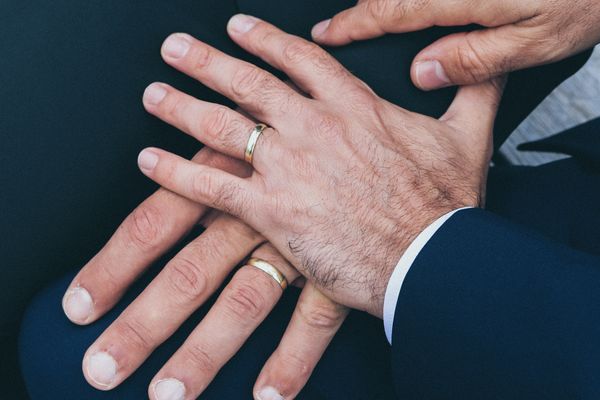Dear Straight Millennials at Pride,
*Note in this article I use the word queer to refer to the LGBTQ community, as the word queer is more inclusive than this simple acronym.
This is a letter from your local, caring lesbian addressed to all of you straight millennials out there going to Pride. Keep in mind as you read this letter that I have many straight friends whom I love and with whom I love to go to queer events. This being said, these friends acknowledge that they experience a different level of privilege than I and their other queer friends. My relationships with my queer friends, mostly lesbian or gay identifying individuals, differ greatly from those I have with my straight friends only because these queer friends have experienced similar obstacles as myself. While both straight friends and queer friends can sympathize with the obstacles I face as a lesbian, only my queer friends can truly comprehend and appreciate the struggle, as we share the same stories of repression. My queer friends and I have faced the obstacle of having to interview housemates/roommates and ask them if they’re queer friendly only to have them say yes and later find that they (or their friends) disrespect our pronouns and/or our partners. My straight friends have never been interrupted rudely on the street when holding hands with their significant other, they’ve never been asked to make-out in public nor have they been afraid to hold their partner’s hand in certain parts of town. They also have never had the experience of coming out of a gay closet, an experience that happens not just once to family members and friends but many times over the course of a lifetime, although they may have come out of a different type of closet (telling their loved ones of some other identifying feature they may have been hiding). This being said, though the struggles we face are certainly distinct from one another, we support each other all the same.
Or we should. I have had straight people who I believed were my friends who have attended Pride with me or with others without understanding or even truly hearing the problems I’ve had as a lesbian. When I explained these problems I’ve mentioned above, among other queer-related issues, blank stares or choirs of “Oh. Sucks,” surrounded me. These people have not understood why I want to leave a certain place due to homophobic talk I’ve overhead and that makes me feel extremely uncomfortable because they are too busy with their own fun. These friends, of course, turned out not to be true friends or allies of queer people. Unfortunately, there are too many of these people at Pride events. Understand that we, the queer community, should not be expected to celebrate our victories with you if you can’t be there for us during our losses.
Let’s talk about the origins of Pride. On the morning of June 28, 1969, a police raid occurred at the Stonewall Inn, a popular gay bar in Manhattan’s Greenwich Village neighborhood. This police action was not uncommon during that time; few gay bars existed and police often raided the few that did. As a reaction to the raid, queer folks rallied and rioted in the week following. These riots lead to the creation of queer activist groups calling to have those in their community be loud and proud about their sexual orientation. The year following the Stonewall riots, the first Pride parade took place to commemorate the events of Stonewall and to allow a space for queers to celebrate who and how they love safely and without fear.
Knowing the history of this event and the struggles that queer people still encounter is key to being respectful and approaching all Pride events respectfully. To understand the origins of Pride is to understand that the event is not just another summer party for you and your friends to dance and get drunk. For queer folks, Pride liberates us from the obstacles we face everyday. For many of you straight folks, this event has become an excuse to party. There are many opportunities for straight people to party in public this way, but fewer (albeit there are many more in recent years) for the queers among us. When you stomp around, sloppy and drunk, pushing your way to the front of the crowd, you are demonstrating your privilege, which only becomes escalated by the fact that few may reprimand you for this behavior due to the face that we’ve been trained into silence (especially the women among us). In non-respectful partying such as this, queer obstacles can become obscured and it may seem like we don’t even face any (or like gay marriage was the only obstacle we ever faced), but please recognize that just because we’re having a ball on this day does not mean obstacles, at the personal and political levels, do not exist.
Thanks for partying with us this Pride season. Respect one another and be kind year round, not just in the month of June.
Much love,
Jamie Funk
For more of ranting of a similar nature check out: http://sfist.com/2015/06/29/when_exactly_did_pride...





















